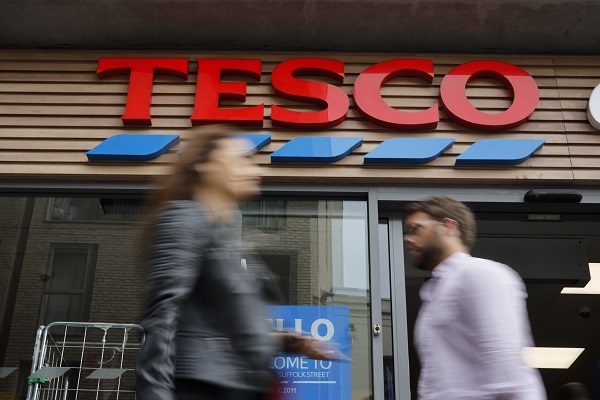Tesco upgrades forecasts as profits swell
The UK's largest supermarket is still the one to beat after delivering strong half-year results. Our head of markets talks through the numbers and the grocer's progress on slashing costs.
4th October 2023 08:39
by Richard Hunter from interactive investor

Tesco (LSE:TSCO) is still the one to beat as it relentlessly delivers value to customers and shareholders alike.
Its drive on lowering prices for customers is enabled by its sheer scale and strength, falling food inflation, and a significant cost reduction. In turn, this creates something of a virtuous circle, with more customers attracted by the likes of the group’s Aldi Price Match, Low Everyday Prices and Clubcard Prices. At the same time, it has also honed its upper end offering, with its Finest range continuing to take market share from its rivals.
- Learn more: SIPP Portfolio Ideas | How SIPPs Work | Transfer a SIPP
Meanwhile, the customer has a wide choice of smaller, irregular purchases or larger weekly shops through any number of delivery channels.
While the return to physical shopping has been in evidence across retailers as a whole, Tesco has also maintained growth in its online channel, which grew by 10% and now represent 13% of overall sales, 4% higher than pre-pandemic levels. Its other routes to the till are also seeing strong growth, with large store sales growing by 9.3% over the period and convenience stores by 5.1%.
The parallel concentration on cost reduction to enable finer pricing was illustrated by a fall of £290 million in the period, with a year end target of £600 million. In terms of headline numbers, pre-tax profit was inflated by a previous impairment charge of £626 million dropping out of the comparison, such that the figure of £1.22 billion represented an increase of 207%.
At an adjusted operating profit level, an increase of 14% to £1.48 billion has prompted an upgrade to the full-year outlook, where Tesco now expects a result of between £2.6 billion and £2.7 billion, up from its previous guidance of £2.5 billion. The cash flow number has also been increased from the previous range of £1.4 to £1.8 billion to a new target of between £1.8 and £2 billion.
- UK retail sector: essential tips for investors
- UK retail sector: stocks to watch
- Retail stocks marked lower ahead of upcoming results season
The contributions from both Booker and Tesco Bank are also notable even though they represent a smaller proportion of overall profits. Tesco Bank, for example, saw its adjusted operating profit rise by 25% to £65 million and also paid back a special dividend to the group of £250 million, which was a significant factor in reducing the group’s overall net debt in the period, alongside the increase in cash ringing at the tills.
The prodigious levels of cash which Tesco generates has also surfaced in shareholder returns. The group is £503 million into completing its current £750 million share buyback programme, while the dividend has been maintained in line with group procedure, with the current yield of 4.2% adding to the overall attraction of the stock.
Of course, the supermarket sector is notable for the ferocity of competition, and the current economic headwinds facing many UK households are an additional threat to growth. Inflation may be falling but remains at elevated levels, and more generally the discounters are making their presence felt in this arena. Even so, Tesco has seen market share growth of 0.3% to 27.2%, leaving considerable and comfortable daylight between itself and its nearest competitors.
- Are Tesco shares in the ‘bargain’ basket?
- M&S year-long rally tipped to continue much longer
- The four FTSE 100 income stars returning big money in October
The shares have also responded, despite a more pedestrian showing over recent months. Over the last year, the price has risen by 24%, as compared to a gain of 5.4% for the wider FTSE100, with appetite for the group’s offerings apparently undiminished for investors as well as consumers.
As such, there should be little to trouble the group’s longstanding position as the preferred play in the sector, with the market consensus of the shares remaining at a 'strong buy'.
These articles are provided for information purposes only. Occasionally, an opinion about whether to buy or sell a specific investment may be provided by third parties. The content is not intended to be a personal recommendation to buy or sell any financial instrument or product, or to adopt any investment strategy as it is not provided based on an assessment of your investing knowledge and experience, your financial situation or your investment objectives. The value of your investments, and the income derived from them, may go down as well as up. You may not get back all the money that you invest. The investments referred to in this article may not be suitable for all investors, and if in doubt, an investor should seek advice from a qualified investment adviser.
Full performance can be found on the company or index summary page on the interactive investor website. Simply click on the company's or index name highlighted in the article.